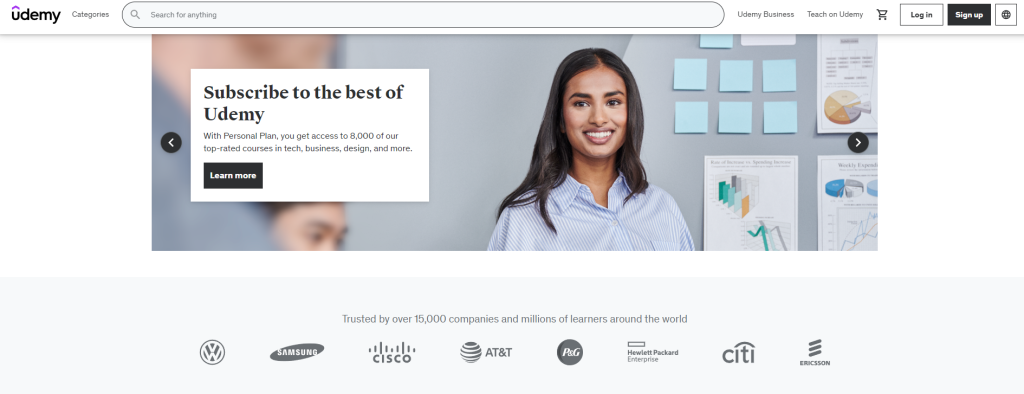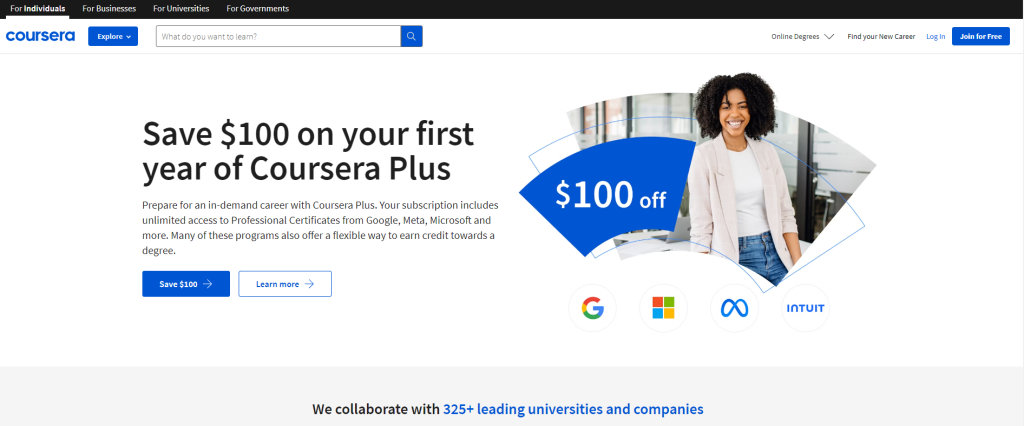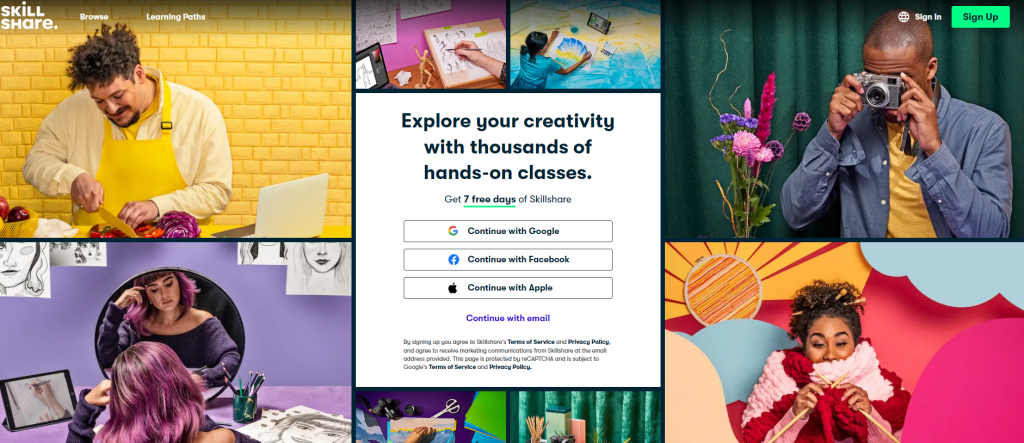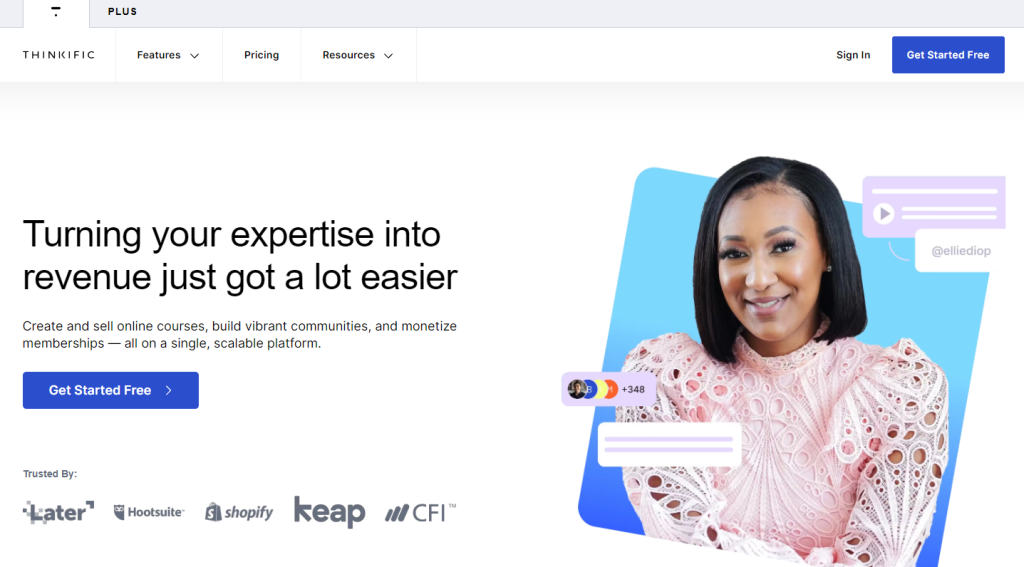Online Course Platforms for Teachers
An online course is a class taught through the internet. It lets teachers share knowledge with students from anywhere. Teachers can reach more people without needing a physical classroom. Online courses offer teachers many benefits, like flexibility in scheduling and the chance to meet students from all over the world.
how do these courses help teachers? Can they make teaching easier and more effective? The answer is yes. Through these platforms, teachers can create engaging lessons, track student progress, and even earn extra income.
Here are the best 5 Online Course Platforms for Teachers
Udemy

Udemy is a well-known online learning platform that allows instructors to create and sell courses on various topics. It offers a user-friendly interface for course creation, hosting, and marketing. Teachers can upload videos, presentations, quizzes, and other course materials.
How to join Udemy as Instructor
- Sign up for a new instructor account on Udemy’s website.
- Complete your instructor profile by providing relevant information about your expertise and teaching experience.
- Create your first course by selecting a topic and following Udemy’s course creation guidelines.
- Record and upload your course content, including video lectures, presentations, quizzes, and other materials.
- Set the pricing for your course and choose a revenue share model with Udemy.
- Preview and publish your course after ensuring it meets Udemy’s quality standards.
- Promote your course using Udemy’s marketing tools and your own channels.
- Receive payments based on the revenue share model every time a student enrolls in your course.
Coursera

Coursera partners with universities and organizations to offer a wide range of online courses, including free and paid options. Teachers can create courses on Coursera and leverage its extensive learner base.
How to Join Coursera as an Instructor
- Visit the Coursera for Institution page and click on the “Become an Instructor” button.
- Complete the online form, providing details about your institution, academic qualifications, and teaching experience.
- Coursera will review your application and get back to you if your institution is eligible to offer courses on their platform.
- If approved, you’ll need to work with your institution’s online program team to develop and produce your course content.
- Course content typically includes video lectures, assignments, quizzes, and other learning materials.
- Once your course is ready, Coursera will provide guidance on the review and publishing process.
- After publishing, your course will be available to Coursera’s global learner community.
- Coursera handles course marketing, enrollment, and revenue sharing with your institution.
Skillshare

Skillshare is a platform focused on creative and entrepreneurial skills. It offers a project-based learning approach, making it a great option for teachers in areas like design, photography, and creative writing.
How to Become a Teacher on Skillshare
- Sign up for a teacher account on Skillshare’s website.
- Complete your teacher profile, highlighting your expertise and teaching experience.
- Propose a class idea by submitting a brief description, outline, and sample video.
- If your class proposal is approved, start creating your class content.
- Record video lessons, create project files, and develop class materials.
- Submit your completed class for review by the Skillshare team.
- Once approved, your class will be published on the Skillshare platform.
- Promote your class through your own channels and social media networks.
- Earn revenue based on the number of students who enroll in your class and watch your videos.
- Skillshare pays teachers a royalty based on a percentage of the membership fees earned from their classes.
edX

edX is a nonprofit online course provider created by Harvard and MIT. It offers courses from leading universities and institutions around the world. Teachers can create and host courses on edX, benefiting from its reputation and global reach.
How to Teach on edX
- Contact edX about offering a course by filling out their course inquiry form.
- Provide details about your institution, the proposed course, and your teaching credentials.
- If your course proposal is accepted, you’ll work with the edX course production team to develop your course content.
- Create video lectures, assignments, quizzes, and other course materials following edX’s guidelines.
- Your course will undergo a rigorous review process by the edX team to ensure quality.
- Once approved, your course will be scheduled for release on the edX platform.
- edX handles course marketing, enrollment, and learner support.
- As an instructor, you’ll have access to data and analytics about your course’s performance.
- edX courses are typically offered for free or at a modest fee, with revenue shared between edX and your institution.
Thinkific

Thinkific is a user-friendly platform that allows teachers to create, market, and sell online courses. It offers a wide range of customization options, making it easy to create courses that align with your branding and teaching style.
How to Get Started with Thinkific
- Sign up for a Thinkific account by choosing a pricing plan that suits your needs.
- Use Thinkific’s course builder to create your online course curriculum.
- Upload video lessons, PDF files, quizzes, and other course materials.
- Customize the look and feel of your course with Thinkific’s themes and branding options.
- Set up pricing and payment options for your course, including one-time payments or subscription models.
- Integrate marketing tools like email marketing, affiliate programs, and coupons to promote your course.
- Publish your course and share it with your audience through your website or Thinkific’s built-in sales pages.
- Track student progress, engagement, and revenue through Thinkific’s analytics dashboard.
Why Should You Join Online Course Platforms
There are several compelling reasons why teachers should consider joining online course platforms:
Reach a Wider Audience: Online platforms allow you to share your knowledge and expertise with learners from around the world, breaking geographical boundaries.
Passive Income Potential: Many platforms enable you to earn revenue by selling your courses. Once created, your courses can generate passive income as more students enroll.
Flexible Teaching: Online teaching offers flexibility in terms of scheduling and location. You can create courses at your own pace and teach from anywhere.
Diverse Course Topics: Online platforms cater to a wide range of subjects and topics, allowing you to teach about your areas of expertise and passion.
Professional Development: Creating online courses can enhance your teaching skills, subject matter expertise, and familiarity with digital tools.
Cost-Effective: Compared to traditional classroom setups, online platforms often have lower overhead costs and require minimal infrastructure investments.
Analytics and Feedback: Many platforms provide analytics and feedback tools, allowing you to track student progress, engagement, and gather insights for course improvement.
Branding and Visibility: Joining reputable online platforms can increase your professional visibility, establish your brand as an expert, and open up new career opportunities.
FAQ
How do I choose the right online course platform?
Consider factors such as the platform’s user-friendliness, course creation tools, pricing models, marketing features, and audience reach.
Review the platform’s terms and conditions, revenue sharing policies, and community support. It’s also helpful to try out free trials or take a course on the platform to experience it from a student’s perspective.
What kind of courses can I create on these platforms?
Online course platforms generally allow you to create courses on a wide range of topics, from academic subjects like math, science, and languages, to creative skills like design, photography, and writing, as well as professional development courses in areas like business, marketing, and programming.
How much can I earn from teaching online courses?
Your earnings will depend on the platform’s revenue sharing model, the pricing of your course, and the number of students enrolled.
Some platforms offer a percentage of course revenue, while others have subscription or one-time payment models. Factors like the quality of your course, effective marketing, and your expertise also influence your earning potential.
Do I need any special equipment or software to create online courses?
Most online course platforms provide tools and resources for creating and uploading course content.
You may need a decent webcam, microphone, and screen recording software for recording video lectures. Some platforms may also require specific file formats or have recommendations for editing software.
How do I market and promote my online courses?
Online course platforms typically offer built-in marketing tools and options for promoting your courses, such as course listings, email marketing, affiliate programs, and social media integration.






